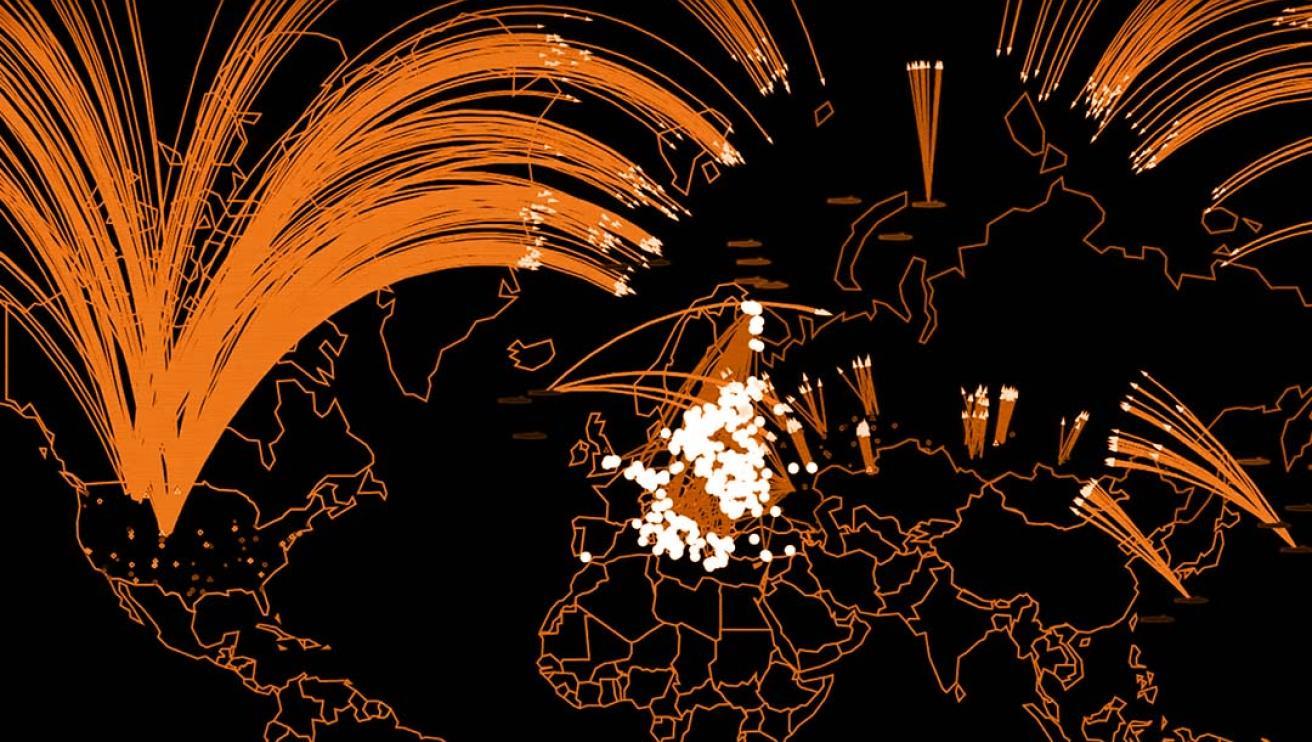$1 Million Grant Awarded to Program on Science and Global Security by MacArthur Foundation to Tackle Rising Nuclear Dangers

The Program on Science and Global Security (SGS), based at the Princeton School of Public and International Affairs, was awarded a $1 million grant from the MacArthur Foundation Nuclear Challenges program.
At a time of growing nuclear threats, the award will support SGS efforts to strengthen and advance nuclear disarmament, arms control, and nonproliferation processes.
“The U.S. and Russia together hold about 90% of all nuclear weapons worldwide and are modernizing their nuclear weapons,” said Alex Glaser, associate professor of mechanical and aerospace engineering and international affairs and co-director of SGS. “Relations have also been badly damaged by U.S. and Russian actions in recent years, especially during the Russian war against Ukraine. We’re at a critical moment in arms control, and this grant funding will help to pave the way forward.”
The grant will help to support new and existing initiatives. This includes:
Developing concepts for a next-generation architecture and options for U.S.-Russia arms control. With the U.S. and Russia investing in new nuclear weapons and the only remaining U.S.-Russian treaty limiting the size of their deployed strategic nuclear arsenals set to expire in 2026, there is urgent need to build a new wider-ranging restraint and risk reduction framework.
Enabling a future U.S.-China arms control process. This will occur through a U.S.-China expert dialogue on nuclear weapons issues to map out key issues and concerns and by hosting leading Chinese arms control expert Tong Zhao as a visiting research scholar.
Scoping out and reducing the threats of emerging technologies. With the U.S., Russia, and China rapidly militarizing emerging technologies, SGS researchers led by Sébastien Philippe, associate research scholar, will assess the drivers and risks of the development and deployment of quantum, cyber, and space-based technologies for nuclear weapons vulnerability and for global security.
Fresh approaches to arms control and disarmament verification. Work at SGS to be led by Glaser will focus on using virtual reality for developing new on-site inspection methods, and assessing the potential of high-resolution near-continuous satellite imagery for remote monitoring. SGS also will undertake disarmament verification science experiments with faculty affiliate Robert Goldston, professor of astrophysics, at the Princeton Plasma Physics Laboratory.
Supporting implementation of the U.N. Treaty on the Prohibition of Nuclear Weapons. Led by Zia Mian, SGS co-director, the research team will provide scientific and technical advice and policy input to states and civil society groups as it did during the treaty-making process and at the first meeting of states-parties held in June 2022.
Organizing the annual Princeton School on Science & Global Security event. SGS will recruit and host graduate students and postdoctoral researchers from around the world as part of its effort to educate, mentor, and make more diverse and inclusive the next generation of nuclear disarmament researchers.
Widening and deepening participation by scientists in the U.S. nuclear policy process. SGS will support the Physicists Coalition for Nuclear Threat Reduction in educating and engaging physicists as advocates for arms control. The coalition has recruited about 1,000 members so far. About half are early career scientists. The coalition’s Next-Generation Fellowship aims to foster a more diverse nuclear policy community. This effort was co-founded at SGS by Mian; faculty affiliate Stewart Prager, professor of astrophysical sciences; and Frank von Hippel, senior research physicist and professor of public and international affairs emeritus.
Advancing a more intersectional and humanitarian approach to nuclear weapon policy processes. Supported by Ray Acheson, a visiting researcher, this work includes developing curriculum resources and enabling conversations on how racism, exclusion, domination, and exploitation work in national and international nuclear policymaking.
Exploring decision-making behavior in a nuclear crisis and making the risks of current nuclear policies more vivid. SGS will build on the success of its Nuclear Biscuit virtual reality experience. Developed by Sharon Weiner and Moritz Kütt, both visiting researchers, it illuminates the role of heuristics, past experience, emotion, and irrationality in U.S. presidential decision-making under the extreme uncertainty and stress of a nuclear crisis. The experience is being made available to members of Congress and their staff, former officials, experts, and the media.
Using virtual reality for public engagement with nuclear weapon issues. SGS will support museum and gallery installations and conference and community screenings of its award-winning virtual reality documentary film co-produced by Glaser On the Morning You Wake (to the End of the World).
“As evidenced by the projects we’re pursuing, this new grant allows SGS freedom to explore, take creative risks, and seek new opportunities for progress towards a world free of nuclear weapons,” Mian said.
Founded in 1974 by Frank von Hippel and Harold Feiveson, SGS aims to impact national and international nuclear weapon debates, policies, and processes to create new options and constituencies for a safer and more peaceful world. Learn more here.
